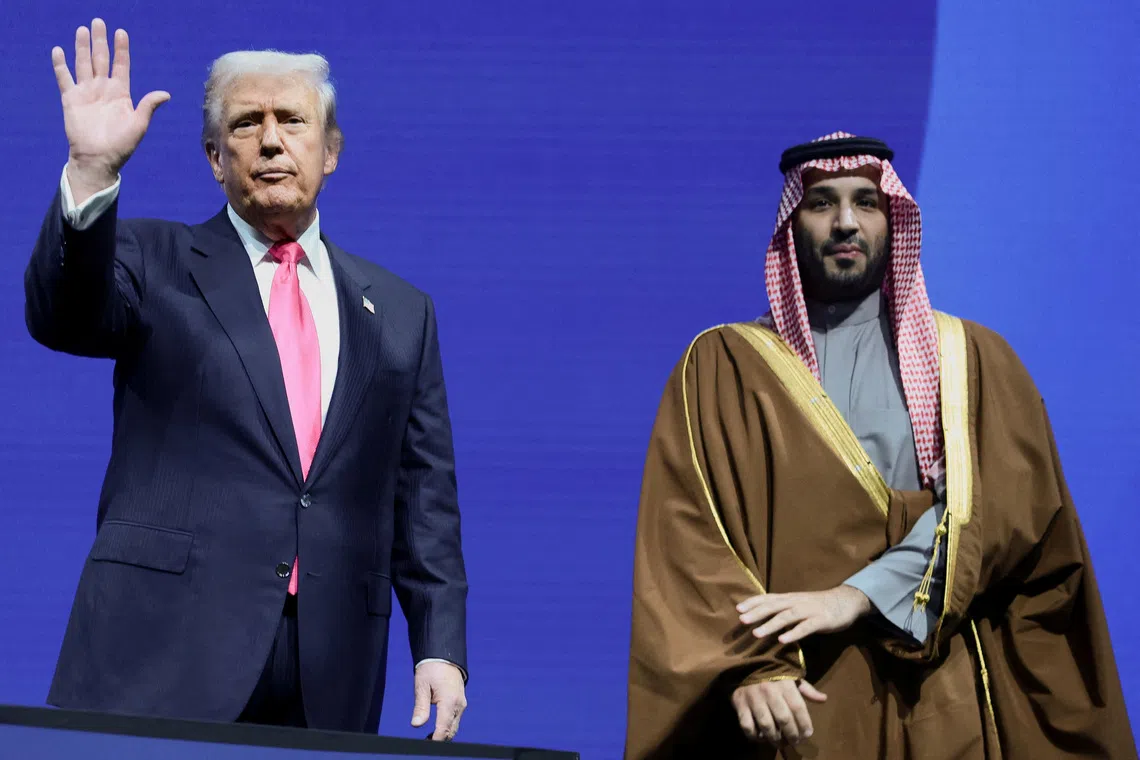Trump's 'America First' Shifts US Human Rights Policy: A Deep Dive into Transactional Diplomacy & Autocrat Alliances
 United States
Politics
United States
Politics

President Trump's 'America First' agenda has reshaped US human rights policy, favoring transactional diplomacy over traditional advocacy. His defense of MBS des
Trump's 'America First' Shifts US Human Rights Policy: A Deep Dive into Transactional Diplomacy & Autocrat Alliances
The recent staunch defense by President Donald Trump of Saudi Crown Prince Mohammed bin Salman concerning the 2018 murder of U.S.-based journalist Jamal Khashoggi has once again highlighted a profound transformation in American foreign policy. Critics quickly renewed accusations of Trump's apparent affinity for authoritarian leaders, but his remarks went deeper, revealing a significant departure from the United States' long-standing global commitment to human rights.
A New Era of Transactional Diplomacy
While past U.S. administrations have navigated complex relationships with leaders possessing questionable human rights records to advance national interests, President Trump has elevated this approach to an unprecedented level. Unlike his predecessors, Trump has not merely cooperated with prominent autocratic rulers—from Saudi Arabia and Hungary to China and El Salvador—but has openly praised them. His administration has consistently opted for a transactional foreign policy, showing little inclination to curb these leaders' actions.
The stark shift was vividly illustrated when Trump, in the Oval Office, publicly absolved Crown Prince Mohammed bin Salman of any involvement in Khashoggi's assassination. This declaration directly contradicted the findings of U.S. intelligence agencies, which had concluded otherwise. Brett Bruen, a former Obama administration foreign policy adviser, critically observed that Trump's actions effectively "give a green light to strongmen to do whatever they want," undermining fundamental principles of U.S. global relations.
Rehabilitating Images and Selective Scrutiny
This week, President Trump's focus has been on bolstering the Saudi de facto ruler's international standing. Mohammed bin Salman received a red-carpet welcome at the White House, with Trump emphasizing burgeoning economic and security ties with the world's largest oil exporter and facilitating meetings with top U.S. CEOs.
This approach aligns with the administration's broader willingness to overlook alleged human rights abuses by other friendly leaders, such as Turkish President Tayyip Erdogan and Hungarian Prime Minister Viktor Orban. Conversely, Trump's administration has actively pursued what critics deem questionable accusations of rights violations against governments ideologically at odds with its agenda, including Brazil and South Africa. This selective application of human rights concerns has fueled apprehension about partisan targeting.
White House spokeswoman Anna Kelly defended the administration's stance, asserting that all foreign policy actions are guided by the "America First agenda" and that "No one cares more about human rights than President Trump."
A Repurposed Human Rights Apparatus
Some analysts argue that Trump, now ten months into his second term, has pushed this transactional strategy to new extremes. His aides, however, contend that Trump's personal diplomacy fosters U.S. interests. Under his leadership, human rights issues haven't been abandoned but rather "repurposed" to align with priorities like economic dealmaking and policies appealing to his "MAGA" base.
This shift has involved a complete overhaul of the State Department's human rights division, historically a cornerstone of U.S. democratic values promotion. Under Secretary of State Marco Rubio, the department has curtailed its annual human rights report and refocused the Bureau of Democracy, Human Rights and Labor on "Western values." Administration officials justify this re-emphasis, including less attention to gender-based violence and LGBTQ+ persecution, as a move away from interfering in other nations' sovereign affairs.
However, the administration has selectively intervened in European politics, condemning perceived suppression of right-wing leaders in Romania, Germany, and France, and accusing European authorities of censorship. It has also publicly pressured Brazil's leftist government regarding the prosecution of former President Jair Bolsonaro, a right-wing ally convicted of attempting a coup after the 2022 election. While largely silent on human rights under right-wing governments (e.g., reports of torture in El Salvador's megaprison), Trump has been vocal against Venezuelan President Nicolas Maduro, citing alleged drug trafficking ties and political repression.
Defenders and Critics Weigh In
U.S. Representative Brian Mast, a Florida Republican and close Trump ally, lauded the administration's foreign policy, highlighting its role in ending conflicts as evidence of significant humanitarian outcomes.
However, others, like U.S. Senator Bernie Sanders, expressed deep concern, stating that Trump "is putting America on the side of the dictators and oligarchs." The president's effusive praise for Mohammed bin Salman during the Crown Prince's first White House visit in over seven years, where Trump repeatedly called him a friend and absolved him of Khashoggi's murder, served as a stark demonstration of this approach. Even while the Crown Prince has cracked down on dissent, Trump commended his human rights efforts.
Trump's admiration for foreign leaders wielding extensive power at home is well-documented, evidenced by his personal friendships with Erdogan, Orban, Russian President Vladimir Putin, and Chinese President Xi Jinping. Critics lament that such actions, coupled with domestic policies like mass deportations and threats against news organizations, undermine both U.S. democracy and its international image as a bastion of rule of law. John Sifton, Asia director for Human Rights Watch, concluded that "The United States government no longer has any credibility on human rights issues, at home or abroad."





